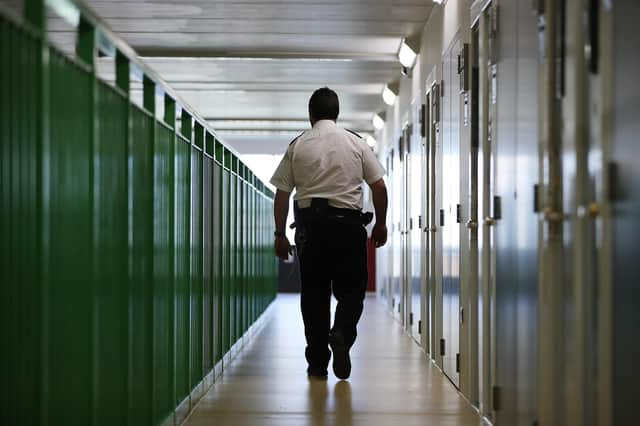Scotland's real-life 'justice league' truly are superheroes worth celebrating – Karyn McCluskey


However, anyone working in justice will tell you that the changes in someone’s life can sometimes be infinitesimal and can happen after many years of chaos and harm.
Change never happens in a straight line. Progress can be followed by regression, support and a great relationship can be followed by radio silence and ghosting.
Advertisement
Hide AdAdvertisement
Hide AdBeing a justice worker is a complicated, skilled profession and also incredibly stressful. It involves being an expert in dealing and managing risk.
Ask any justice social worker about what keeps them awake in the small hours. It will be the complex people who walk through their doors; those convicted for sexual and violent offences who may be subject to multi-agency public protection, vulnerable women, men and young people beset with trauma who have harmed others and been harmed themselves.
Justice workers need to be masters of many subjects including housing, addiction, mental health, learning difficulties and so much more. They need to bring their whole selves to work – for a relatable, supportive worker can be the difference between success and failure.
I met a young woman last week who told me she had trained as a social worker after hearing me speak about justice at her university. She made my day. She said how hard the work was, how much she loved it. Her enthusiasm was infectious.
We were at an event focusing on people with communication needs who come into the justice system. Many who walk through our doors have a diagnosis of additional needs and young people will need frequent explanation about what’s going on and what they need to do.
Far too many appear in the system undiagnosed, sometimes with visible challenges but many have hidden problems. Their ability to understand what is happening to them, comply with community orders and participate in society can be fundamentally affected by their ability to understand and express what is happening.
The late US Defence Secretary Donald Rumsfeld had a famous quote about known knowns, known unknowns, and unknown unknowns. Just one of the big known unknowns is the number of people, particularly in the justice system who have foetal alcohol spectrum disorder. It’s likely to be substantial and can impact on communication ability, impulsiveness, balance, vision and hearing to varying degrees.
Changes in justice involving online custody and court cases mean that we must ensure people are able to understand and participate in this virtual world to guarantee that justice is delivered fairly. It’s a fundamental need.
Advertisement
Hide AdAdvertisement
Hide AdJustice can get a tough ride in the media – failure makes the front page, human error is exposed and pilloried. There have been some excellent programmes on radio and television which explore the role of justice social work and other services. But it’s difficult to show an individual’s transformation process.
So here’s to the multi-talented justice professional, with more strings to their bow than an orchestra, to those who are just starting off, to some weary colleagues who are working hard to address the court backlogs. We see you.
Karyn McCluskey is chief executive of Community Justice Scotland
